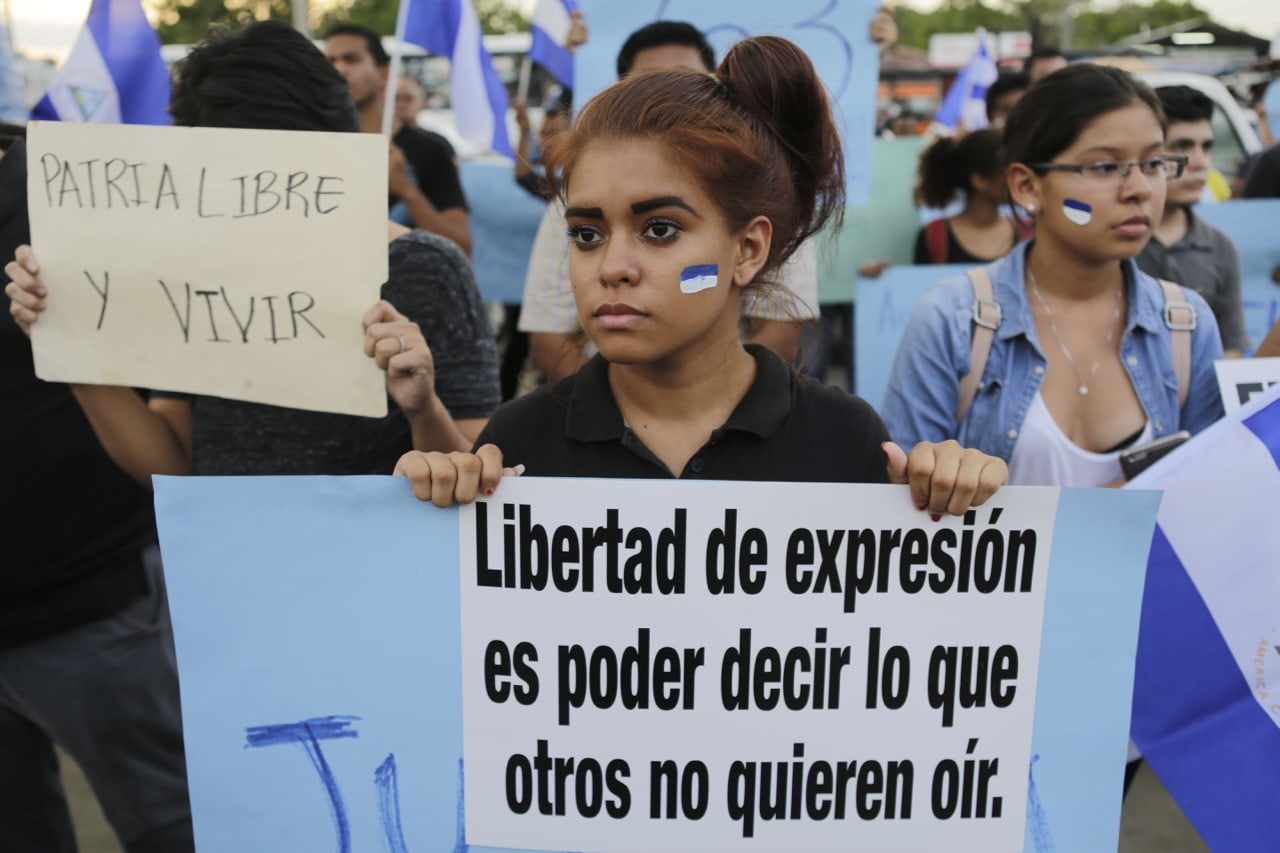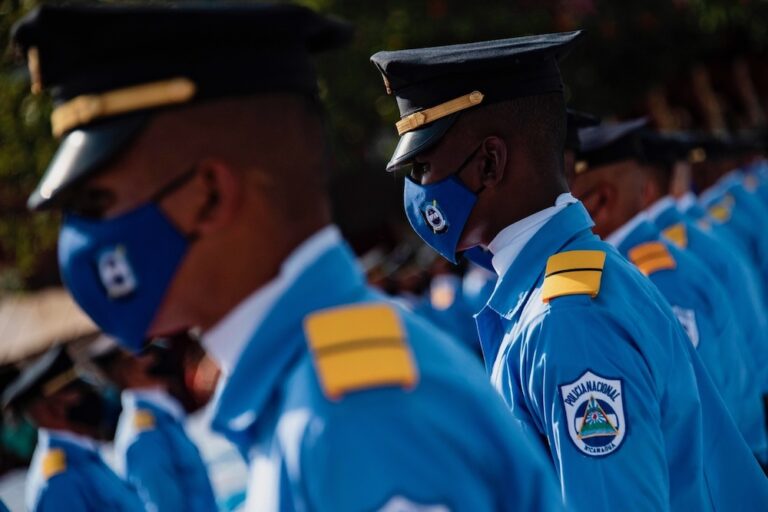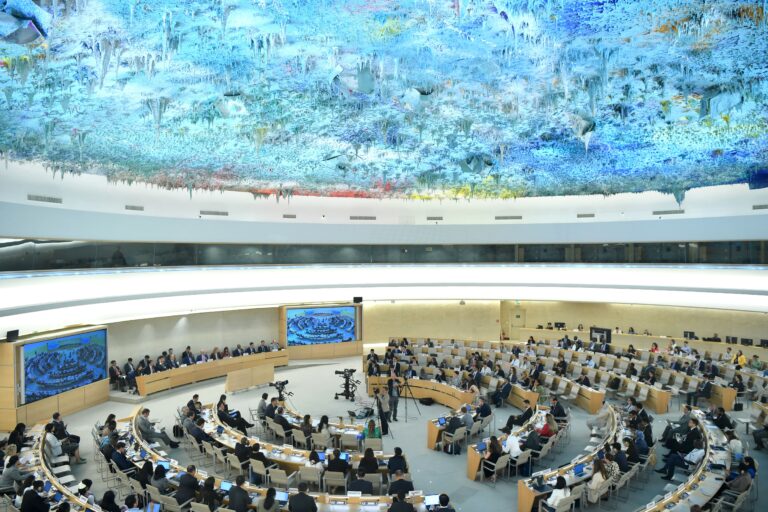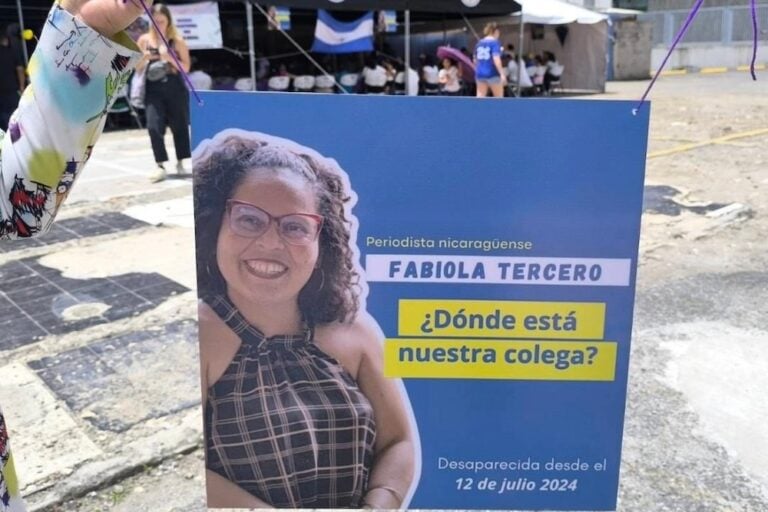The persecution of Nicaragua's political opposition and media critics has not let up since April. But now, instead of just obstructing journalists covering protests and social unrest, the police are undertaking direct, violent action against those regarded as overly critical of the government.
This statement was originally published on rsf.org on 5 December 2018.
After more harassment of independent journalists in November, including arbitrary detention, violence, death threats and spying, Reporters Without Borders (RSF) sounds the alarm about President Daniel Ortega’s increasing authoritarianism and the danger of press freedom being throttled to death in Nicaragua.
The persecution of Nicaragua’s political opposition and media critics has not let up since April. But now, instead of just obstructing journalists covering protests and social unrest, the police are undertaking direct, violent action against those regarded as overly critical of the government.
Spy drones, police violence
Their targets have included Gustavo Jarquín, a journalist with Radio Corporación, who was stopped and insulted by three police officers near the radio station’s headquarters in Managua on 24 November. “You’re from the terrorist radio station that wants to overthrow the government,” one of the policemen said, before hitting him in the face.
Policemen have threatened to kill Miguel Mora, the owner and director of the TV news channel 100% Noticias, and his wife, Verónica Chávez, who presents the programme “Ellas lo dicen.” The police have been harassing him for weeks, and both the radio station and his home are permanently watched by individuals posted outside.
A drone hovered over his home and its garden for several hours on 25 November. After forcing him to get into a police car on 30 November, policemen hit him and made death threats, mentioning members of his family. Arrested a total of six times since 24 November, he is now charged with inciting hatred and promoting hate campaigns on his website.
Carlos Salinas Maldonado, a journalist and editor for the website confidencial.com.ni who also writes for the Madrid daily El País, has been a repeated target of cyber-attacks and online harassment campaigns, while police patrol cars often spy on his home. Motorcyclists followed him as he drove from his home to El Confidencial on 27 and 28 November, repeatedly shouting: “You’re f***ed, that’s definite, you’re f***ed.”
Radio frequencies cut, transmitters trashed
The censorship and harassment take many forms. The telecommunications regulator TELCOR suddenly deprived 100% Noticias of its broadcast signal on 30 November without giving any reason. Other TV channels (including Canal 12, Telenorte, CDNN23, Canal 12, Canal 23 and Canal 51) were temporarily deprived of their frequencies earlier this year.
Last week, police invaded and trashed the property in the department of León where Álvaro Montalván, the owner and director of Radio Mi Voz, had placed the radio station’s transmitters.
“The common feature of the journalists and media outlets that are being hounded by the police and by Daniel Ortega’s personal bodyguards is their independent and critical news coverage, which is something the government is unable to tolerate,” said Emmanuel Colombié, the head of RSF’s Latin America bureau.
“These independent media outlets are nonetheless doing a vital job, which is to draw attention to the Ortega family’s violent crackdown and the almost complete control it wields over the country. The persecution of dissident journalists is unacceptable and poses a grave threat to press freedom. RSF supports all of Nicaragua’s independent media and calls on the international community not to ignore these abuses.”
Local media badly hit
Outside the big cities, community media and local radio stations are being hit very hard by the purge. In the town of León, several members of the staff of Radio Dario – which Ortega supporters torched in April – were arrested arbitrarily by riot police on 23 November and were held for several hours before being released. The staff of Radio Vos in Matagalpa had a similar experience.
RSF has registered many other recent cases of journalists being harassed by Sandinista government supporters, who are particularly active in León, one of the towns that has been hit worst by censorship. The targets have included Eddy López, a reporter for the Managua newspaper La Prensa, as well as Radio Mi Voz director Montalván and several members of his staff.
RSF also condemns the arbitrary detention of Luis Sánchez Sáncho, a 76-year-old columnist for La Prensa, who spent six days in prison as a result of an ordinary traffic accident, and the fact that many journalists have had to flee the country.
Those who have fled abroad include Carlos Pastora of Canal 10, Edgardo Pinell of VOS TV and Canal TV, and Jaime Arellano, the host of “Jaime Arellano en La Nación” on 100% Noticias. Arellano fled on 25 November because of repeated death threats and other forms of harassment. Other journalists are likely to follow if the persecution continues or intensifies.
RSF issued several alerts and recommendations about the situation of Nicaragua’s independent media after a joint visit with the Inter-American Press Association in August. Nicaragua is ranked 102nd out of 180 countries in RSF’s 2018 World Press Freedom Index.



